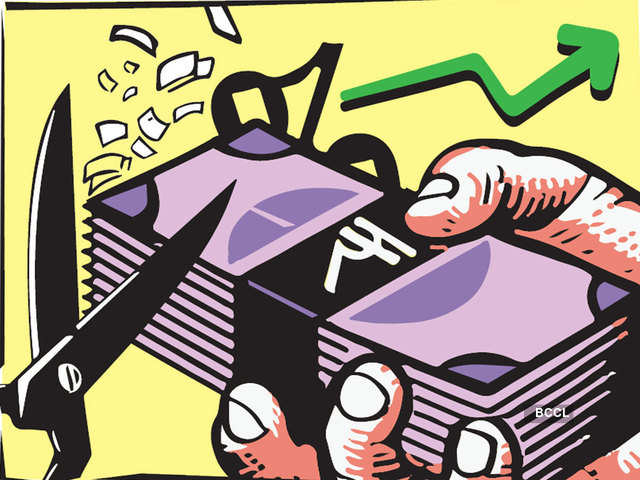RIO DE JANEIRO, BRAZIL – The high tax burden in Brazil makes domestic products more expensive, discourages investment, and opens the door to illegality. Taxes on Brazilian goods can be up to five times the value of taxes levied on the same goods in other countries, especially neighboring countries.
According to experts on the subject, the imbalance heats up the informal market and leads to losses for the Brazilian industry, which loses the competitiveness of its products.
The report “Tax Statistics in Latin America and the Caribbean 2021” shows that the tax burden in Brazil represents 33.1% of GDP (gross domestic product), lower only than that of Cuba (42%). Paraguay, one of the main gateways for smuggling into Brazil, has a tax burden of 13.9% of GDP – 19 percentage points lower than Brazil.
Despite the need for taxes for the country’s revenue, the lack of balance in tax rates due to Brazil’s high tax rates on industrial products creates room for a more significant profit margin in the illicit market and encourages smuggling, experts warn.

“The higher the taxes are, the more the smuggling can make money and make a profit margin since the product imported by the criminals is cheaper than the domestic product. With the profit margin that smuggling has today, it’s not a problem if they bring in two loads and confiscate one. They still make a profit,” says Luciano Godoy, a former federal judge and professor at FGV Direito São Paulo, one of the authors of the study “Illegal Market in Brazil: Diagnosis and Solutions.”
The high tax burden gives unfair market advantages that do not translate into benefits for Brazil. According to sector professionals, high taxes in segments with high illegality do not mean more revenue for the state or less tax evasion. In 15 sectors of Brazilian industry, tax losses and evasion amounted to more than R$280 billion in 2020.
The consequences of this scenario are disastrous for the country, where tax revenues are low, few formal jobs are created, investments are lost, and economic and social development declines. At the same time, criminal organizations grow large and rich.
HIGHER TAX BURDEN ON PRODUCTS
The Brazilian tax system places a higher tax burden on products consumed than on income. This means that goods purchased by citizens are taxed at the highest rate in the country.
Cigarettes are among the products most affected by the difference in taxation in Brazil and Paraguay. In Brazil, taxes levied on the final product vary between 70% and 90%, depending on the ICMS collected by the state, according to an Ibope Inteligência/ Ipec survey published by Etco (Brazilian Institute of Competition Ethics) in 2021. In the neighboring country, the tax levied on the tobacco industry is 18% – one of the lowest rates in the world.
A similar imbalance in cigarette taxation existed in Canada in the 1990s. Given the high taxation of tobacco products in the country, people paid $1.45 less tax per pack in the United States when they crossed the border between Ontario and New York. As a result, the illicit market grew on Canadian territory, and its share of the economy increased from 1% in 1986 to 31% in 1993.
To combat smuggling, Canada cut the tax burden on cigarettes by half. Because of the lower taxes, tobacco use in the country has not increased. On the contrary, it has declined, according to the School of Public Health Sciences at the University of Waterloo.
In the early 1990s, smokers made up 31% of the adult population. By 2001, the percentage of Canadians who smoked had dropped to 22%. Seizures of contraband tobacco also declined under the measure, falling by 93.6% between 1993 and 2001.
“The Canadian example shows that border controls are not enough. As long as there is a large price differential between two countries, illicit trade is very profitable and encouraged,” Godoy said.

FISCAL IMBALANCE AFFECTS MULTIPLE SECTORS
The fiscal imbalance is not limited to cigarettes. According to a survey conducted by Idesf (Border Institute for Economic and Social Development) in November 2021, taxes on beverages in Brazil range from 38% to 49%, while in Paraguay, tariffs on the final product range from 5% to 11%.
The IT sector is also heavily affected by the difference, according to the survey. Domestically, taxes on these goods range from 24% to 33%, while the tax on computer goods is 1% in Paraguay.
The president of FNCP (National Forum against Piracy and Illegality), Edson Vismona, says that the big incentive for the illegal product is the price. According to economic logic, there is only a supply if there is a demand, which is attracted by the lower cost of the goods, explains the lawyer.
“The smuggled product enters the market with a fantastic competitive advantage because the tax is included in the price, and in Brazil, the tax is high. The tax burden for several products is at least 40%. So if you don’t pay tax, you secure a competitive advantage,” he said.
For former Undersecretary of Public Security and Executive Director of the ICL (Instituto Combustível Legal), Guilherme Theophilo, an overhaul of the Brazilian tax model is urgently needed to reduce the space for smuggling in the domestic market and strengthen fair competition in the country.
“Brazil’s excessive taxation encourages illegality. Companies that adhere to legality and pay their taxes participate in the unfair competition because consumers naturally look for the cheapest product. We are waiting for a review of the tax system,” he said.
According to experts, the country must implement an intelligent tax that favors the collection of funds, fights with intelligence the crime of money laundering, which is common in smuggling operations, and participates in strengthening Mercosur to increase cooperation with neighboring countries to curb smuggling.
“The industry knows that there will be some informal market, as there is in the more developed countries of Europe and the United States. The problem is that smuggling in Brazil has reached a level that discourages industry from investing, causes billions in losses to the state, and launders money for the benefit of organized crime,” Godoy said.

